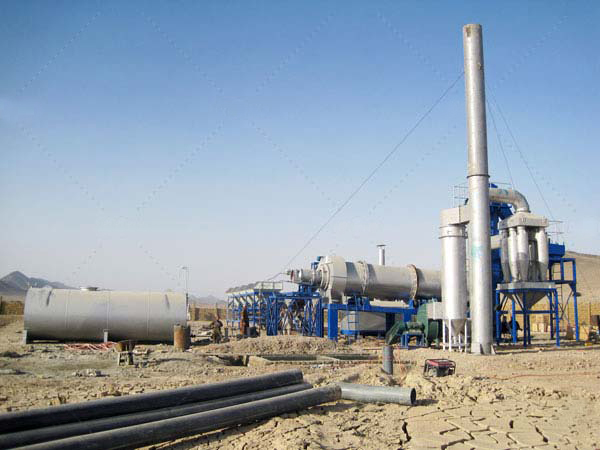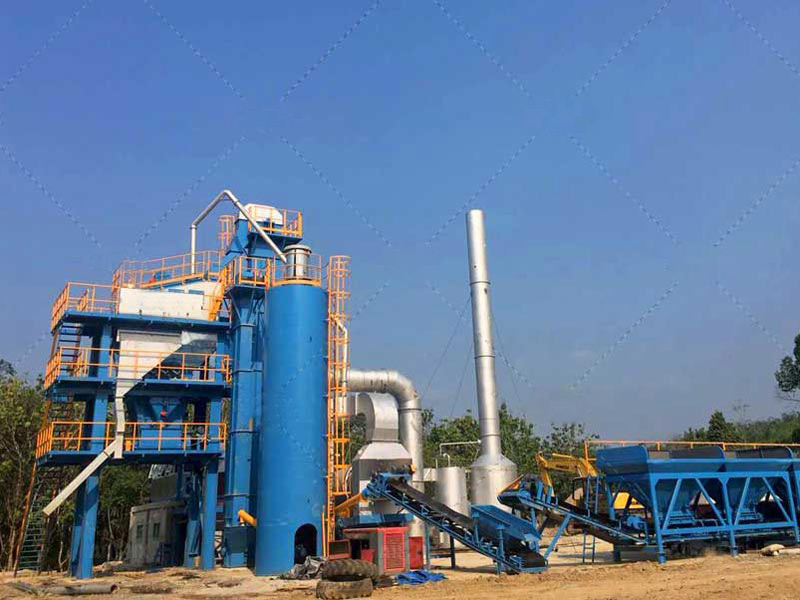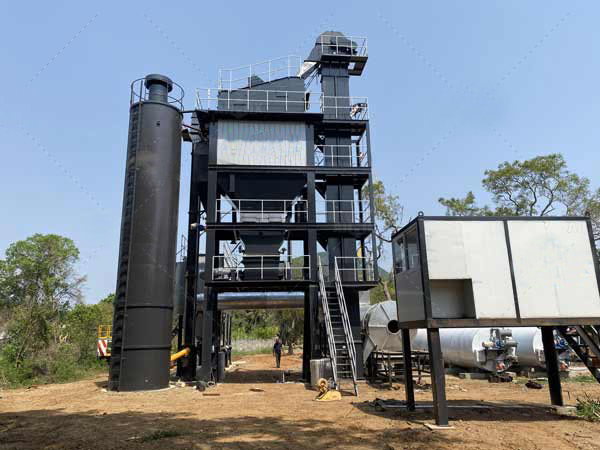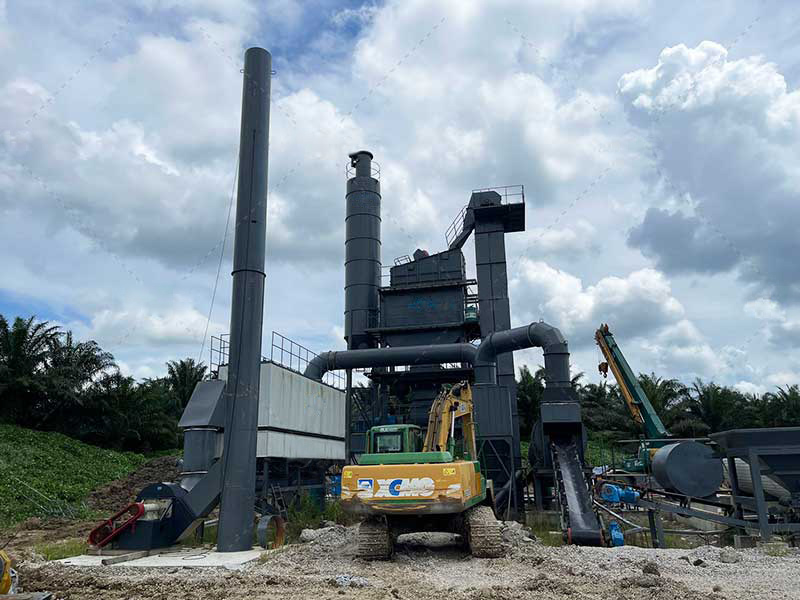28
0
0
Innovative Application of Ultrasonic Cleaning Technology in Asphalt Mixing Plant
Ultrasonic cleaning technology is transforming the way asphalt mixing plants approach equipment cleaning. This method utilizes high-frequency sound waves to create microscopic bubbles in a cleaning solution, which then implode and produce powerful shockwaves that dislodge contaminants. This article explores the innovative applications of ultrasonic cleaning technology in asphalt mixing plants, focusing on its effectiveness, efficiency, and overall impact on operations.

Enhanced Cleaning Efficiency
One of the primary advantages of ultrasonic cleaning technology is its ability to provide a thorough clean in a fraction of the time compared to traditional methods. In asphalt mixing plants, equipment such as mixers, conveyors, and pipes often accumulate residue and contaminants that can affect performance. Traditional cleaning methods may require extensive manual labor and harsh chemicals, which can be time-consuming and damaging to equipment.
Ultrasonic cleaners, on the other hand, can reach intricate surfaces and hard-to-access areas that are typically challenging to clean. For instance, in fixed asphalt mixing plants, the complex geometries of certain components can trap debris and asphalt residue. Ultrasonic cleaning effectively removes these contaminants without the need for aggressive scrubbing or disassembly, significantly reducing downtime and improving overall operational efficiency.

Environmental and Economic Benefits
The adoption of ultrasonic cleaning technology also offers substantial environmental benefits. Traditional cleaning methods often rely on harsh chemicals that can be harmful to both the environment and plant personnel. Ultrasonic cleaning systems generally require less chemical usage, as the cavitation process effectively dislodges contaminants with minimal chemical intervention. This makes it an eco-friendly alternative, aligning with the industry’s increasing focus on sustainability.
From an economic perspective, the reduced downtime associated with ultrasonic cleaning translates to cost savings. For mobile and mini asphalt mixing plants, where operational flexibility is crucial, minimizing cleaning time can directly impact productivity. By maintaining equipment in optimal condition, plants can enhance their output and reduce maintenance costs associated with worn or damaged components.

Versatility in Extreme Conditions
Ultrasonic cleaning technology is particularly beneficial for asphalt mixing plants operating in extremely cold areas. In such environments, the accumulation of asphalt residue can harden, making it more difficult to clean using traditional methods. Ultrasonic cleaning systems can effectively tackle these tough residues, ensuring that equipment remains operational even in challenging conditions.
Furthermore, the versatility of ultrasonic cleaning systems allows them to be integrated into various types of asphalt mixing plants, including drum mix and batch mix plants. Regardless of the plant type, the ability to maintain clean equipment is essential for producing high-quality asphalt. This versatility ensures that operators in all regions, including those with extreme weather conditions, can benefit from improved cleaning processes.
In conclusion, ultrasonic cleaning technology presents an innovative solution for equipment cleaning in asphalt mixing plants. By enhancing cleaning efficiency, providing environmental benefits, and offering versatility in extreme conditions, this technology is poised to improve operations significantly. As the asphalt industry continues to evolve, embracing advanced cleaning solutions like ultrasonic technology will be crucial for maintaining high standards of quality and efficiency in asphalt production.

Enhanced Cleaning Efficiency
One of the primary advantages of ultrasonic cleaning technology is its ability to provide a thorough clean in a fraction of the time compared to traditional methods. In asphalt mixing plants, equipment such as mixers, conveyors, and pipes often accumulate residue and contaminants that can affect performance. Traditional cleaning methods may require extensive manual labor and harsh chemicals, which can be time-consuming and damaging to equipment.
Ultrasonic cleaners, on the other hand, can reach intricate surfaces and hard-to-access areas that are typically challenging to clean. For instance, in fixed asphalt mixing plants, the complex geometries of certain components can trap debris and asphalt residue. Ultrasonic cleaning effectively removes these contaminants without the need for aggressive scrubbing or disassembly, significantly reducing downtime and improving overall operational efficiency.

Environmental and Economic Benefits
The adoption of ultrasonic cleaning technology also offers substantial environmental benefits. Traditional cleaning methods often rely on harsh chemicals that can be harmful to both the environment and plant personnel. Ultrasonic cleaning systems generally require less chemical usage, as the cavitation process effectively dislodges contaminants with minimal chemical intervention. This makes it an eco-friendly alternative, aligning with the industry’s increasing focus on sustainability.
From an economic perspective, the reduced downtime associated with ultrasonic cleaning translates to cost savings. For mobile and mini asphalt mixing plants, where operational flexibility is crucial, minimizing cleaning time can directly impact productivity. By maintaining equipment in optimal condition, plants can enhance their output and reduce maintenance costs associated with worn or damaged components.

Versatility in Extreme Conditions
Ultrasonic cleaning technology is particularly beneficial for asphalt mixing plants operating in extremely cold areas. In such environments, the accumulation of asphalt residue can harden, making it more difficult to clean using traditional methods. Ultrasonic cleaning systems can effectively tackle these tough residues, ensuring that equipment remains operational even in challenging conditions.
Furthermore, the versatility of ultrasonic cleaning systems allows them to be integrated into various types of asphalt mixing plants, including drum mix and batch mix plants. Regardless of the plant type, the ability to maintain clean equipment is essential for producing high-quality asphalt. This versatility ensures that operators in all regions, including those with extreme weather conditions, can benefit from improved cleaning processes.
In conclusion, ultrasonic cleaning technology presents an innovative solution for equipment cleaning in asphalt mixing plants. By enhancing cleaning efficiency, providing environmental benefits, and offering versatility in extreme conditions, this technology is poised to improve operations significantly. As the asphalt industry continues to evolve, embracing advanced cleaning solutions like ultrasonic technology will be crucial for maintaining high standards of quality and efficiency in asphalt production.
Signatur
